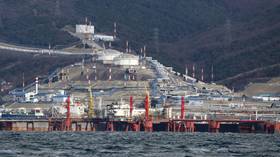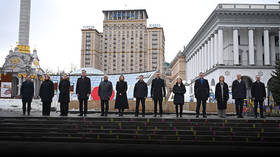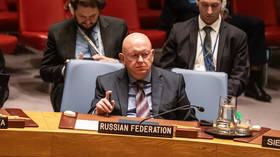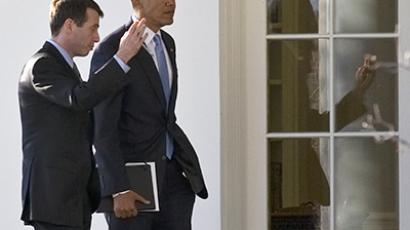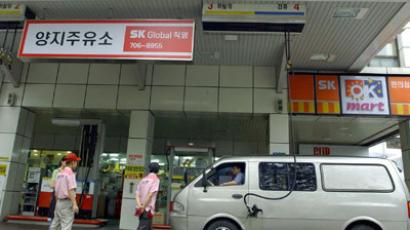Iranian Oops: US may have broken own sanctions by buying Tehran’s oil
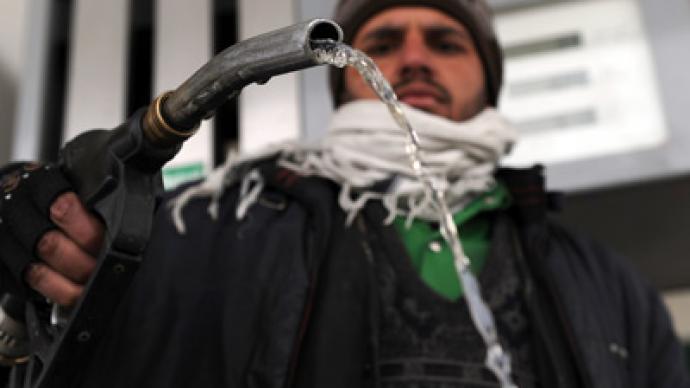
There is a high probability that US sanctions against Iran have been violated by its own army. Part of the $1.55 billion in fuel the US bought from Turkmenistan for the Afghan army in the last five years may have originated in Iran.
A report by the Special Inspector General for Afghanistan Reconstruction (SIGAR) suggested that “despite actions taken by DOD to prevent the purchase of Iranian fuel with US funds, risks remain that US economic sanctions could [have been] violated” from 2007 to 2012.Most of the fuel for domestic Afghan consumption comes from neighboring Iran. Because of the US sanctions on Tehran restricting the trade of Iranian oil and petroleum products, the ISAF has been required to abide by the regulations and buy petrol from eight Afghan-owned companies that deliver petroleum from Turkmenistan, which borders both Iran and Afghanistan.The SIGAR report also acknowledged there are no plausible oversight mechanisms to make sure Iranian petroleum products are not included in future fuel purchases.Turkmenistan is a major regional oil producer, which also trades for petroleum products made in Kazakhstan, Uzbekistan, Russia and Iran. Petrol vendors in Turkmenistan use flexible supply schemes, meaning that fuel of various origins could potentially be blended together.In response to a draft of SIGAR report, the US Embassy in Kabul stated that “it is possible that if blending is taking place in Turkmenistan it could contain some Iranian fuel,” but refused to admit that fuel imported from Russia could also be blended with Iranian fuel prior to its import into Afghanistan. “All fuel imports carry a ‘verified Fuel Passport’ from the refinery, which provides information on the origin, quantity, quality, and specifications of the fuel,” the embassy explained.“Suppliers are unlikely to blend Iranian fuel, or any other product, with other sourced fuel because of the potential that blending could cause product deviation from specification standards and potentially cause a rejection of the entire shipment,” the embassy said.In 2012, the Pentagon reportedly spent over $800 million on imports from Turkmenistan, most likely for fuel purchases.
Iran escaping sanctionsWestern sanctions have taken their toll on Iran: Tehran was formerly OPEC's second-largest oil producer, exporting 2.2 million barrels of oil daily. The sanctions more than halved that figure, to 890,000 barrels of oil exported a day by September 2012.The Iranian economy has lost billions of dollars in revenue, plunging to decades-low figures. The value of the national currency, the rial, has taken a kamikaze dive; the Iranian leadership, including incendiary President Mahmoud Ahmadinejad, was forced to publicly admit the sanctions were having an effect.But Tehran has quickly recovered from the US-EU sanctions imposed on its oil trade. By the end of last year, Iranian crude oil exports rose again to 1.4 million barrels per day. Most of the Iranian oil is sold to Asian countries such as China, India and Japan, where demand for energy is growing. The expansion of Iran’s tanker fleet also helped the Islamic Republic circumvent the sanctions. The US believes that the most common trick Iran uses to dodge sanctions is ship-to-ship transfers (STS), in which large tankers leaving Iran’s ports offload Iranian oil to smaller vessels. Then, the Iranian oil is blended with that of another country to disguise it. After that, new shipping documents are issued, giving the blended oil shipment a new identity, Reuters reported.The US has scrambled to enact countermeasures on the news that its sanctions are being skirted. Reuters reported on Thursday that the US State Department is planning to target companies that deliberately disguise Iranian oil shipments to evade Western sanctions.Also, an unnamed US official said that the US authorities are “increasingly aware of this STS issue,” and that companies involved in covert deals for Iranian oil will be punished. Sanctions violators could be prohibited from trading with the US companies, for example.




